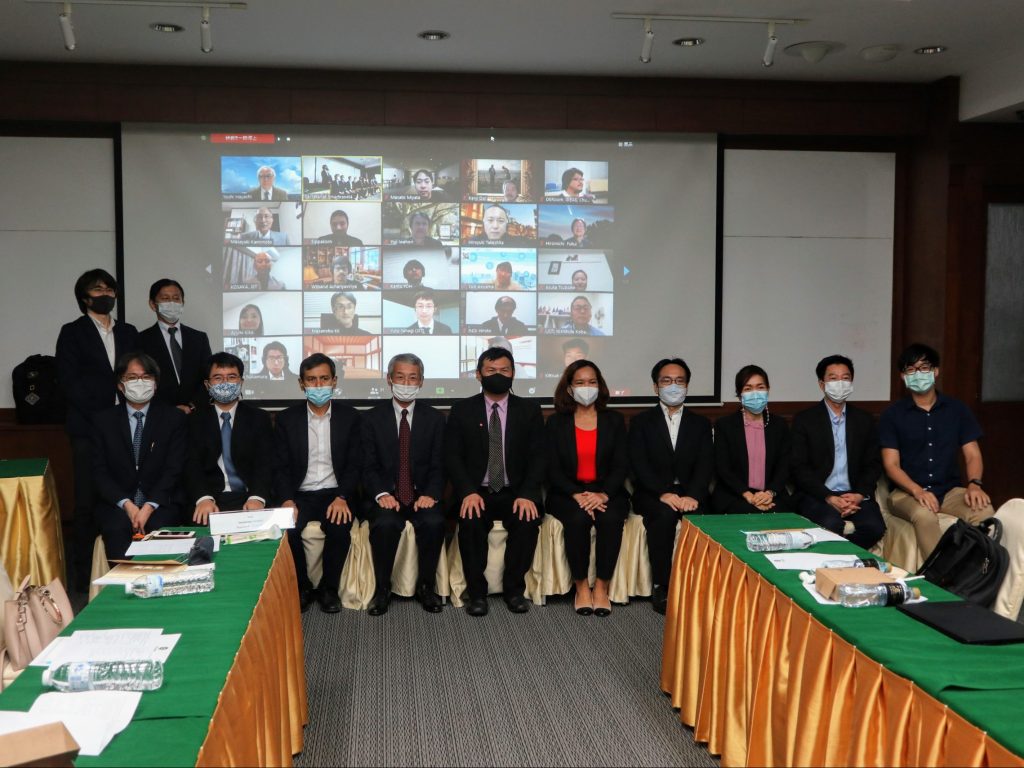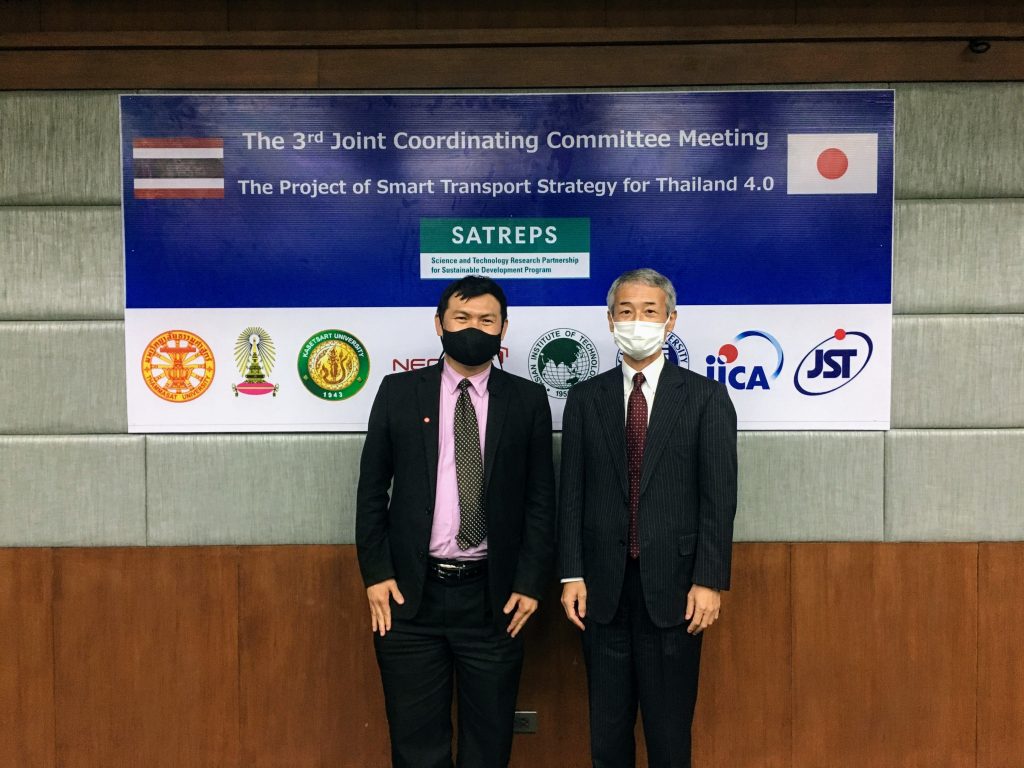The Third Joint Coordinating Committee Meeting
On 9 February 2021, the third Joint Coordinating Committee (JCC) Meeting was held in Bangkok and Japan, which combined a hybrid of face-to-face and remote assembly by web conference. The JCC is a committee consisting of Japanese and Thai members whose work relates to the project, who meet to discuss the progress of activities, issues and solutions. The meeting was divided into two parts: the first part was on scientific achievements and the way forward; the second part was on the plan for forthcoming activities in 2021. The first part invited a target audience of 25 delegates from Thai governmental organizations including the Ministry of Transportation (MOT), the Bangkok Metropolitan Administration (BMA) and others. The second part involved in total 36 project research team members in Thailand and Japan.
In the first part, Prof. Masayuki Kamimoto, the Principal Research Supervisor at the Japan Science and Technology Agency (JST), remarked on the uniqueness of the project’s people-oriented vision with its simultaneous focus on citizen QOL and on a low-carbon society. He stressed the importance of collaborative work between the Thai and Japanese teams for the success of the international research. Following this, Ms. Arunee Hiam, who is the Director of Partnership for the Development Cooperation Bureau at Thailand International Cooperation Agency (TICA), commented on the smart transport strategy that is the project’s overall goal. In order to achieve the project’s goal towards the end of the project timeline, she noted that it is important for the project members to consider policy agencies’ engagement. She also observed that if the Thai government can be convinced of the research findings and how they might be adopted into practice, then there is hope that the smart transport strategy will ultimately be realized to the benefit of Bangkok citizens. In the second part of the meeting, project members reached agreement on the 2021 plan of activity and on holding monthly and bi-annual meetings for enhancing communication among members. In the closing remarks, Mr. Takahiro Morita, Chief Representative of JICA Thailand Office, introduced JICA’s survey on transportation trends in Bangkok after the release from COVID-19 lockdown in the city. The study found that the transportation mode has seemed to shift towards private car use from public transportation, compared with before the pandemic. Therefore, he pointed out, the project’s outcome has become more important for realizing a low carbon society as well as for QOL enhancement. Being at a point halfway to meeting the project goals, Mr Morita emphasized the importance of dissemination, communication and collaboration by the project members and stakeholders. He noted that the project’s technologies must contribute to the improvement of QOL in Thailand.

